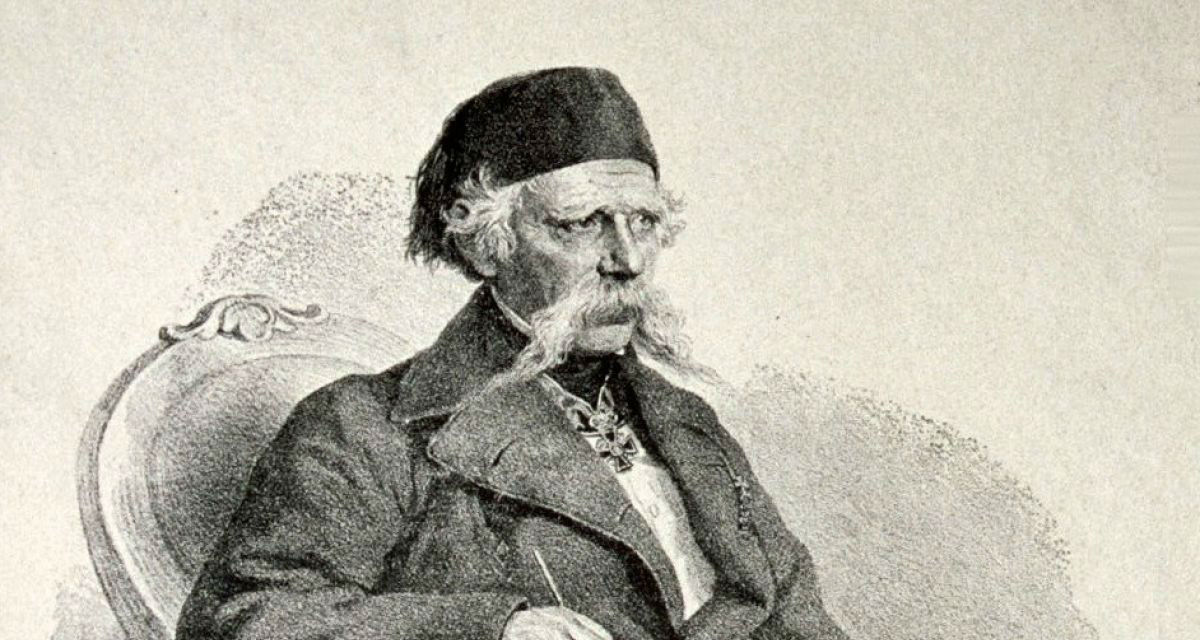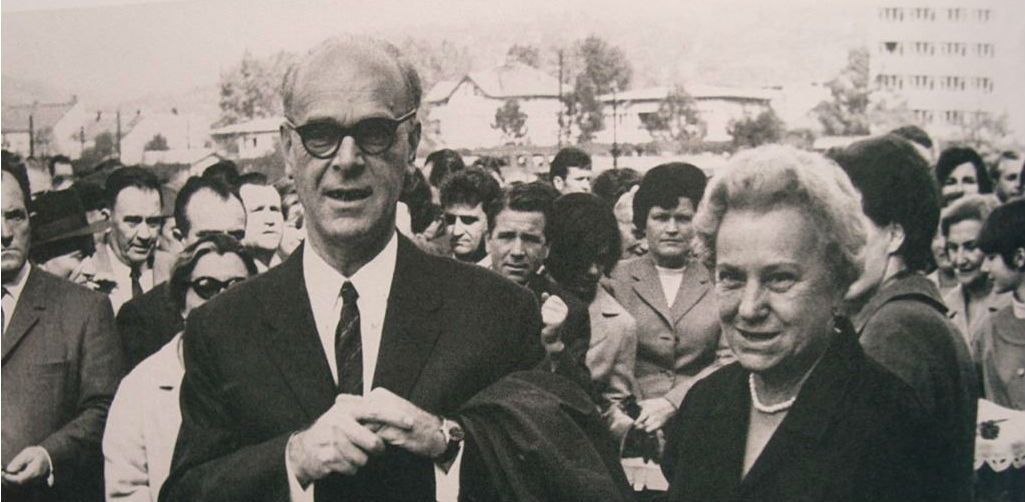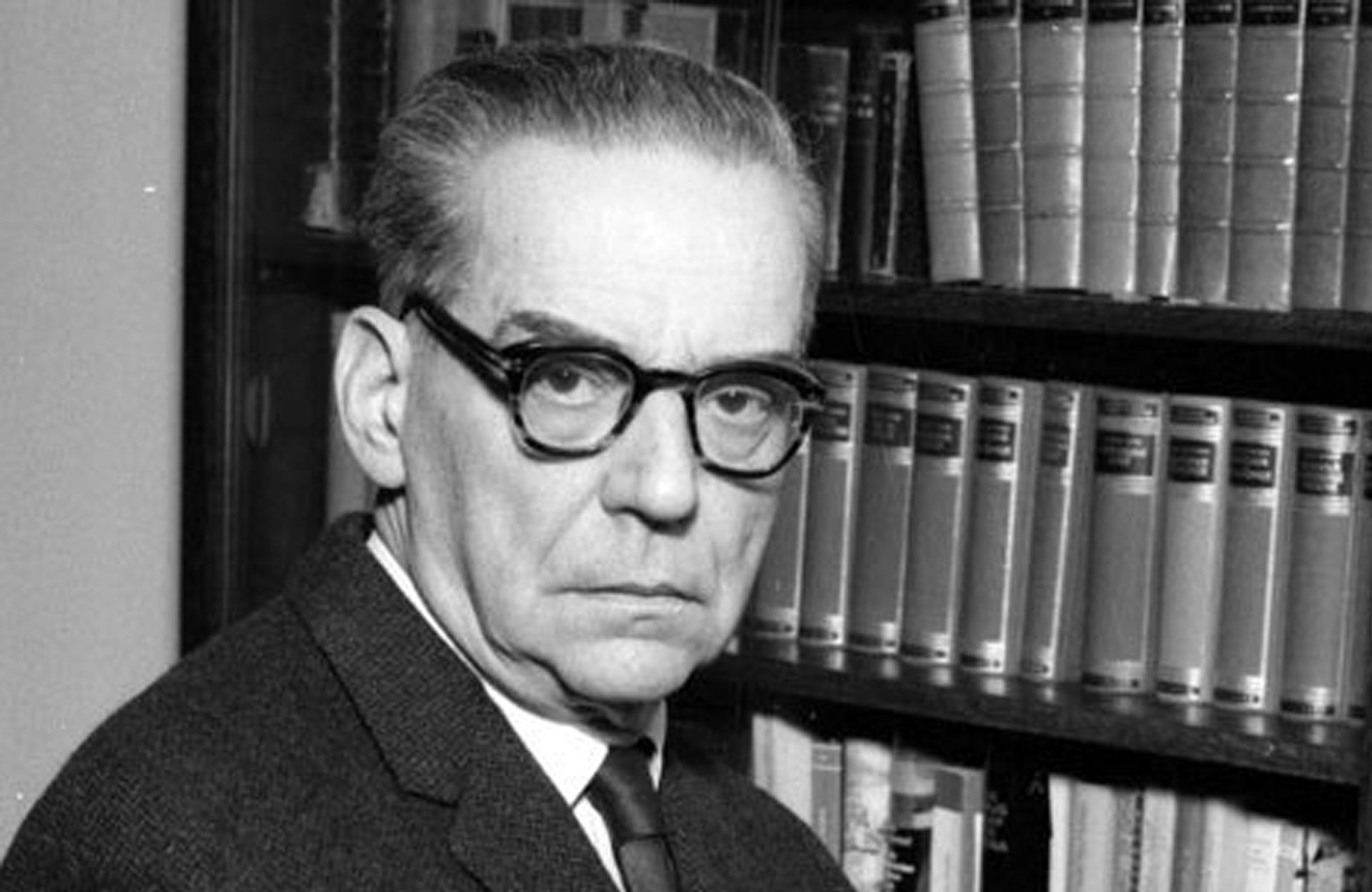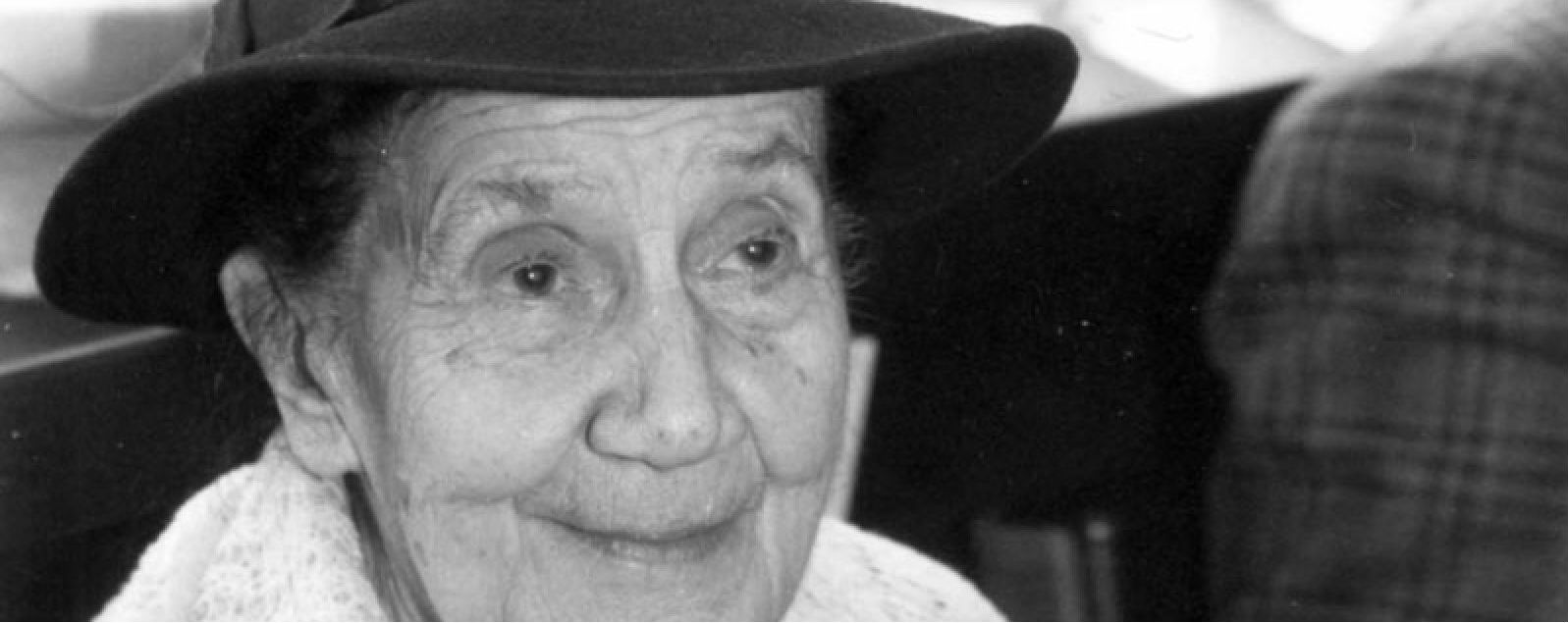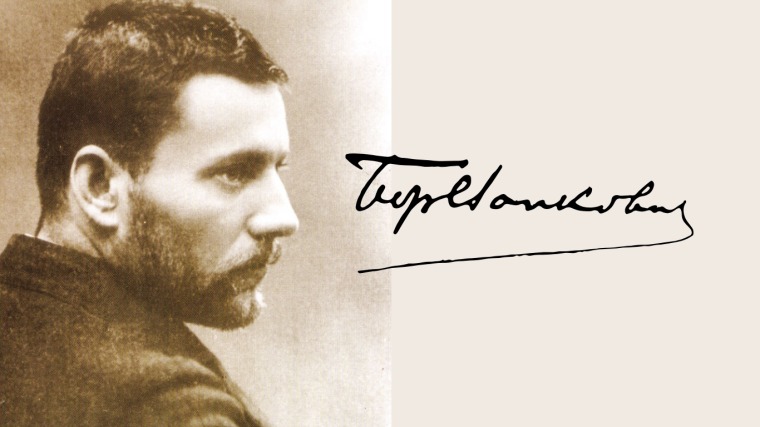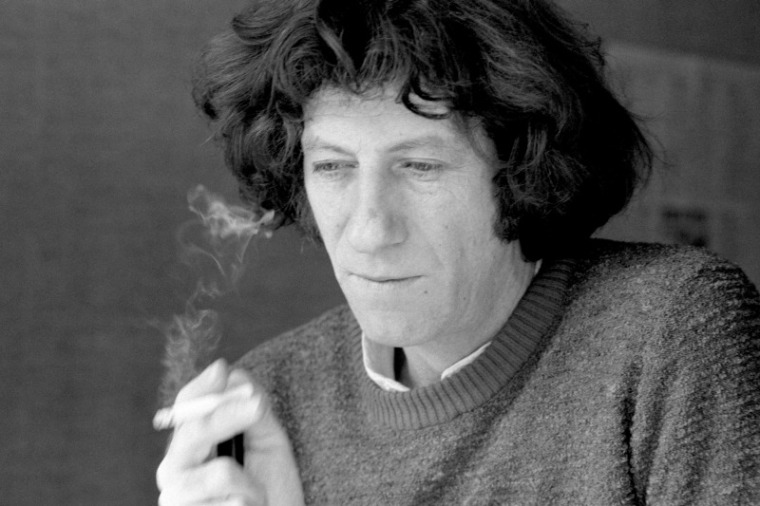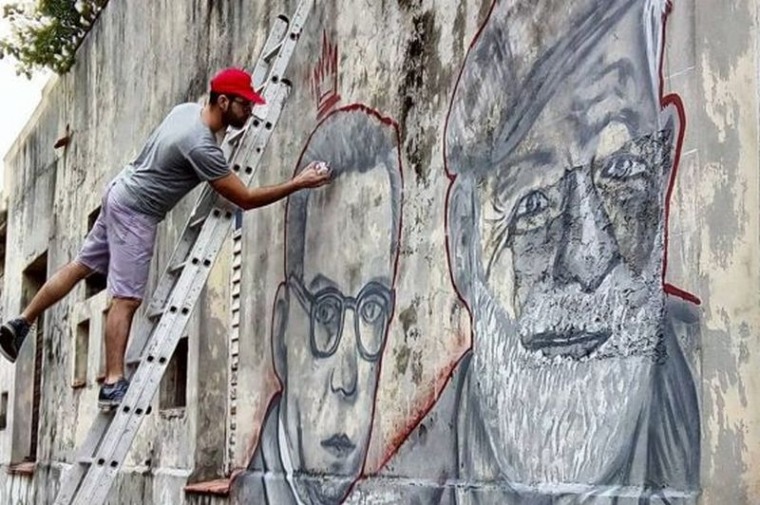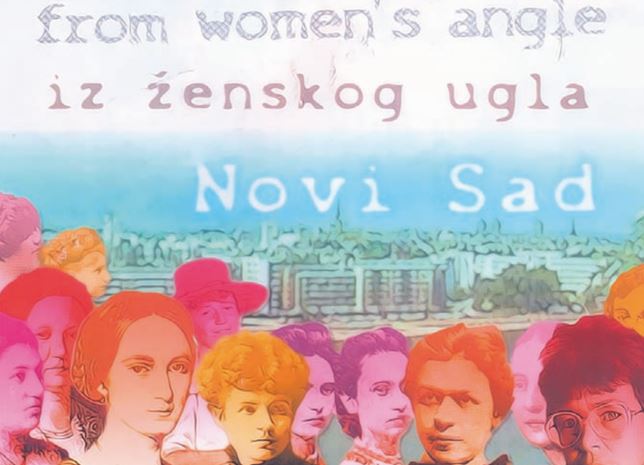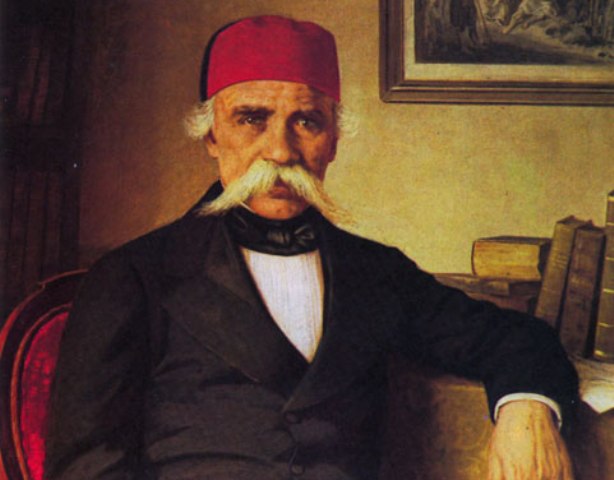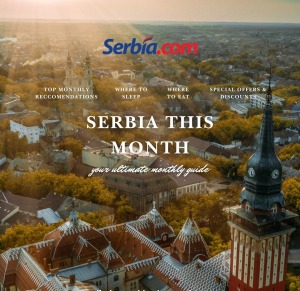Reforms, writing of the first dictionary of the Serbian language, collecting folk literature, conflicts with the most prominent Serbian figures and keeping company with European elite, family tragedy and the introduction of phonetic orthography into the Serbian language, is the life and work of the most important figure of the Serbian literature in the first half of the 19th century – Vuk Stefanović Karadžić.
The birth of Vuk, a boy whom witches and spirits could not harm
In Tršić near Loznica, on November 7. 1787., mother gave birth to a boy who loved school and reading from an early age. However, the path of Vuk’s education was bumpy and difficult. At the times of weak or almost no literacy of the people, it was difficult to gain any knowledge, so Vuk had to struggle from an early age in order to receive and pass the knowledge he was so eager for.

Vuk learned to read and write from Jevta Sava Čotrić (who was the only literate man in that area), and because of a disease that struck him at an early age he was unable to complete his education in Loznica. After an unsuccessful attempt to enroll in high school in Sremski Karlovci, he went to Petrinja where he learned German language, and later, moved to Belgrade, where he met Dositej Obradović and became a student of the Great School in Belgrade.
In order to survive the hard life in a poor family in which children were dying mercilessly, the parents named him Vuk (‘wolf’ in Serbian) believing that it will protect him – according to folktales; these hardships did not discourage the boy who will change the entire course of the Serbian literature in a few years.
Life, work and love in Vienna
A trip to the Austrian capital largely changed Vuk’s life. There, he met Anna Maria Kraus, whom he had married and had thirteen children, of whom all but one son and daughter died. Difficult and sad life of sick and lonley Vuk finally started to change for the better thanks to his acquaintance with Jernej Kopitar with whose help and advice he started to collect folk songs and to work on the grammar of folk-speech.
In the year of 1814. Vuk published “Common folks” Little Slavo-Serbian Songbook“, a collection of folk songs, and soon after he published the first grammar of the Serbian language based on folk-speech – “The Serbian Grammar Written According to the Speech of Common People“. Following advices of many scholars and being aware of numerous incompletenesses and imperfections of the grammar, Vuk published the second expanded edition along with the first edition of the “Serbian Dictionary” in 1818.
The main value of this grammar was a radical simplification of the alphabet and spelling, where Vuk applied his famous mantra: “Write as you speak, and read as it is written“.
However, by eliminating individual letters, as well as adding and adopting new ones, he was condemned by many influential people of the time, among which the most ardent opponents of Vuk’s reforms were representatives of the church and the founder of Serbian Matica, Jovan Hadžić.
The relentless struggle, forty years long
Although a large number of Vuk’s contemporaries did not agree with his ideas and work, he did not give up. Vuk’s increasing will, energy, desire for knowledge and hard work, made his struggle last almost 40 years with minor interruptions.
Jernej Kopitar gave him the greatest support, assistance and encouragement for the work, thanks to which Vuk started the fight, stubbornly persisted and eventually managed to triumph.
Throughout his life full of hardships, father of the modern Serbian language was constantly collecting folk songs, editing his previous work, and struggling to push forward the reform of the Serbian language.

Vuk found allies and admirers of his work primarily abroad. Goethe, Humboldt, Wolf and the Brothers Grimm, were Vuk Karadžić’s close friends.
The ups and downs of a man who dedicated his whole life to the Serbian language, spelling and writing, arrayed together with the recognition and criticism, and there was more and more of it as time went by.
“The Life of the Outlaw Veljko Petrović“, “The Serbian Revolution“, ”The Serbian Folk Proverbs“,”Montenegro and Montenegrins” are Vuk’s works that he wrote and published during the period when his illness, poverty and distance from the country hit him hard. And then came the famous year of 1847…
Vuk’s first victory
He found supporters and allies in the young intellectuals of the Serbian social scene in the 19th century. These allies sided with the reform, change and introduction of common people’s language in the Serbian literature. At the end of the 1840s long-awaited progress in language, spelling and literature was finally beginning to take its outlines, and in 1847., which is considered as the year of Vuk’s triumph, four major works were published and brought him decisive victory.
Vuk’s translation of the “New Testament“, “Songs” (by Branko Radicević), “The Mountain Wreath” (by Petar II Petrović Njegoš), “War of the Serbian language and spelling” (by Duro Daničić), were written in the vernacular and – with the exception of “The Mountain Wreath” – printed on the basis of Vuk’s ortography. These works were proof that the simple poetry, philosophy and even the Bible can be written in vernacular, and these translations were not inferior compared to any translation into another language.
This was an important milestone that represented the epilogue of Vuk’s perennial struggle, having a huge impact on the future direction and development of the Serbian language and spelling. Folk literature, songs, and books in the vernacular that delighted all of Europe and most influential minds of the time, finally got their place and recognition in Vuk’s country. Although his reform has finally become a reality in 1847., it would take more than two decades for Serbia to formally accept Vuk’s orthography.
Vuk’s Convocation, the oldest cultural event in Serbia
On the day when Vuk’s memorial house was consecrated, on September 19, 1933., started an event (which is held to this day, and was only interrupted twice during World War II). Although the content of the program was changing due to various environmental, social circumstances and conformations, the concept has remained focused on cultural content arranged by writers, actors, artists, scientists. In commemoration of the 100th anniversary of Vuk’s death in 1964. this convocation gained republic significance and began to gather the growing number of visitors, while the content became enriched with theater performances, opera and ballet.
Honors, awards, and death of the greatest Serbian literary reformer
For his long and fruitful work Vuk Stefanović Karadžić was honored with numerous awards. He was a member of the Imperial Academy of Sciences in Vienna, Berlin and St. Petersburg; the Austrian emperor awarded him the Knight’s Cross of Franz Joseph, while the Emperor of Prussia awarded him the Medal of Red Eagle; and near the end of his life, he became honorary citizen of Zagreb. He was a participant of the First Serbian Uprising.
Besides his disagreement with Prince Miloš Obrenović and representatives of the Serbian church he polemicized for years with the Serbian scientific elite, fighting all the time to reform the language and spelling.
 Vuk died in Vienna on February 7, 1864.
Many schools were named after him, many books were written about him, and even a Tv mini- series depicting his life was filmed: all of that was inspired by the man who left a legacy of reformed language and spelling, thousands of folk literature and songs, and significant ethnographic records, as well as a sense of pride in all that he did, fighting for his own country and language. He was Vuk Stefanović Karadžić, the father of the modern Serbian language who was immortalized due to his contribution to the state, nation and language.
Vuk died in Vienna on February 7, 1864.
Many schools were named after him, many books were written about him, and even a Tv mini- series depicting his life was filmed: all of that was inspired by the man who left a legacy of reformed language and spelling, thousands of folk literature and songs, and significant ethnographic records, as well as a sense of pride in all that he did, fighting for his own country and language. He was Vuk Stefanović Karadžić, the father of the modern Serbian language who was immortalized due to his contribution to the state, nation and language.
TV mini-series Vuk Karadžić
”Vuk Karadžić” is a renowned Yugoslav biographical television series that follows the life and work of Vuk and reconstructs the Serbian national and cultural revolution of the 19th century. It was filmed on the occasion of the 200th anniversary of the birth of Vuk at locations throughout Yugoslavia and Austria. The famous Serbian actors like Predrag Manojlović, Petar Kralj, Aleksandar Berček, Danilo Lazović and many others played important and beloved people of Vuk Karadžić’s life.[ultimate_spacer height=”30″][dt_fancy_title title=”Related Articles” title_align=”left” title_size=”normal” title_color=”accent” el_width=”100″ title_bg=”disabled” separator_color=”default”][ultimate_spacer height=”30″ height_on_tabs=”” height_on_tabs_portrait=”” height_on_mob_landscape=”” height_on_mob=””]

